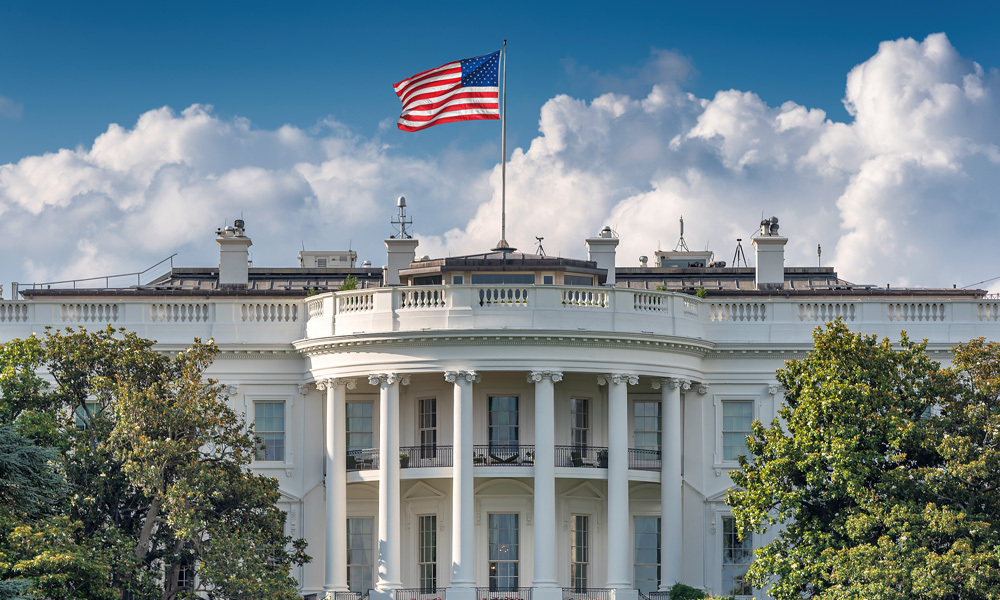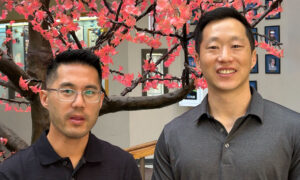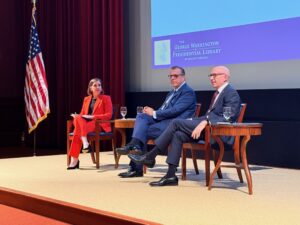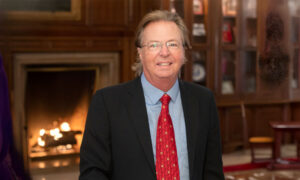Shortly after taking office in 2017, former President Donald Trump posed for pictures with dozens of presidents of Historically Black Colleges and Universities (HBCU).
The photo op was a celebration of the Trump Administration moving an HBCU initiative from the Department of Education to the White House. But the executive order, ostensibly about centralizing HBCU policymaking, may have had a lot to do with publicity, too, new research suggests.
The Trump Administration did not have experienced bureaucrats or policymakers to lead the program, but Omarosa Manigault-Newman – a former reality TV star who threw the largest-ever White House event for HBCU presidents – and Jonathan Holified, an ex-NFL player and motivational speaker, who toured the country to tout the president’s accomplishments.
“Holified did not spend his time trying to get Congress to change the way the HBCU loan program operated. He didn’t spend his time lobbying people in the Department of Education to give out grants to particular HBCUs,” University of Michigan Associate Professor Kenneth Lowand recently told students at the USC Price School of Public Policy. “Mostly, he just spent his time traveling around the country, advertising what the Trump administration was doing for HBCUs.”
Embed from Getty ImagesThe administration’s handling of the HBCU initiative is illustrative of a larger hiring trend in the White House – one that may prioritize the symbolic over the substance of policy making – according to Lowande, who shared an early look at his research at an event hosted by the Political Institutions and Political Economy (PIPE) Collaborative. This program, which is directed by a USC Price faculty member, is a university-wide research project that brings together faculty and students interested in political economy. Lowande presented a new dataset of White House staff employed from 1995 to 2023.
Presidents, Lowande found, tend to hire people with public relations and media experience over policy experts. They pull staff from members of Congress with similar ideologies. The implication that most concerns Lowande is that the hiring trend could lead to worse policy.
“Is the administration doing something that a prudent public manager or a prudent leader would not be doing just because they see an electoral benefit?” he said. “I don’t think that presidents set out intentionally to dupe people, and I think that they all sincerely desire to change policy, but I think that our system incentivizes them to at least keep appearances up in this way.”

Master of Public Policy
Advocate & Innovate for a More Just World
Effective public policy has the power to disentangle increasingly complex global and domestic challenges. With an MPP from USC, you will have that power too.
Find Out MoreThe PIPE workshops give USC students an inside look at how academics produce, present and collaborate on their research. Students got the chance to ask questions and, perhaps, try to poke holes in Lowande’s paper, which is follow-up work based on his forthcoming book, False Front: The Failed Promise of Presidential Power in a Polarized Age.
“This is essentially getting to see what other people are doing, bringing them in to share their expertise and their knowledge with us that might lead to us collaborating and coming up with new ideas,” said PIPE Director Jeffery A. Jenkins, Provost Professor of Public Policy, Political Science, and Law at the USC Price School. “It’s also a way for students who might want to enter academia to see what we do behind the scenes.”
Jenkins said Lowande, one of his former students, provided interesting insights about who works in the White House and the trend toward hiring more people with a communication background.
“That leads to questions: Why is this happening? Is it important? Does it affect policy?” Jenkins said. “When I usually thought about capacity within the White House, it was about things like oversight of the bureaucracy, writing legislation, but one aspect of capacity that probably needs more attention is just communicating information to the public.”





